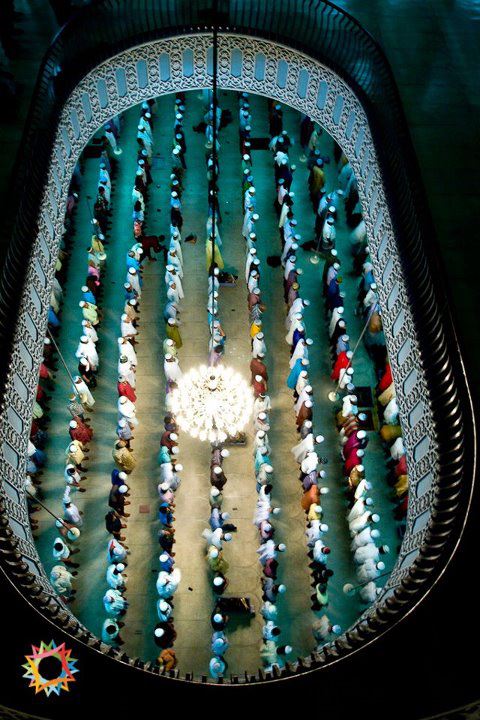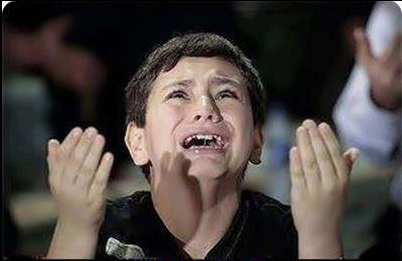It’s Jummah…Did you read Surah Kahf??
Posted in Daily Islam,Quran
Posted in Daily Islam,Hadith
Abu Hurairah {R.A} reports that Nabi {S.A.W} in a Hadith Qudsi narrated that Allah Ta’ala says: I treat My slave according to his expectations from Me. I am with him when he remembers Me; and if he remembers Me in his heart, I remember him in My Heart; and if he remembers Me in a gathering, I remember him in a better and nobler gathering [of Angels]. If he comes closer to Me by one span, I go closer to him an arm’s length; if he come towards Me an arm’s length; I go toward him two arm’s length; and if he come to Me walking I run to him.
{Bukhari} PHOTO CREDIT capturethespiritoframadan.org
PHOTO CREDIT capturethespiritoframadan.org
Posted in Daily Islam,Hadith
The Prophet [S.A.W] said:
The tears that fall from the eyes of a truthful believer, out of the fear of Allah The Most Merciful, and then roll down his face, however little they are, even (though they be) of the size of the head of a fly, shall prevent the Fire of Hell from touching his face.” [Ibn Majah].
Posted in Daily Islam,Hadith
The Prophet (Sallallähu alaihi wa sallam) Said, “There are three solid truths:
1. If a person is wronged and he forbears it (without seeking revenge) just for the sake of Allah (SWT), Allah will honour him and give him the upper hand with His help;
2. If a person opens a door of giving gifts for cementing relationships with relatives, Allah will give him abundance;
3. If a person opens a door of seeking charity for himself to increase his wealth, Allah will further reduce his wealth.’
(Reported from Aboo Hurairah inMishkaah and Musnad Ahmad).
Posted in Daily Islam,Hadith,Quran
“Alms (Zakat) are for the poor and the needy, and those employed to administer the (funds); for those whose hearts have been (recently) reconciled (to Truth); for those in bondage and in debt; in the cause of Allah; and for the wayfarer: (thus is it) ordained by Allah, and Allah is full of knowledge and wisdom.” (Surah Al Tawbah 9:60)
One of the five pillars of Islam, Zakat is a purification for one’s wealth, freeing one from the love of possessions by encouraging humility and discipline. An essential principle of Islam is that everything belongs to Allah. We do not own our wealth, but have been entrusted with worldly possessions by Him.
Zakat means ‘purification’ and ‘growth’; possessions are purified by setting aside a portion for those in need, and like the pruning of plants, this cutting back encourages new growth.
The annual payment of zakat is different to any charitable gifts given out of kindness or generosity, otherwise known as sadaqah. Zakat is a mandatory religious obligation and forms the systematic giving of 2.5% of one’s net wealth each year, benefitting targeted recipients on a sustained basis.
From the Quranic verses ordaining zakat, eight classes of recipients have been identified by the scholars. As Ramadan approaches, we need to organise ourselves to reach out and distribute support to the eight beneficiaries of zakat.